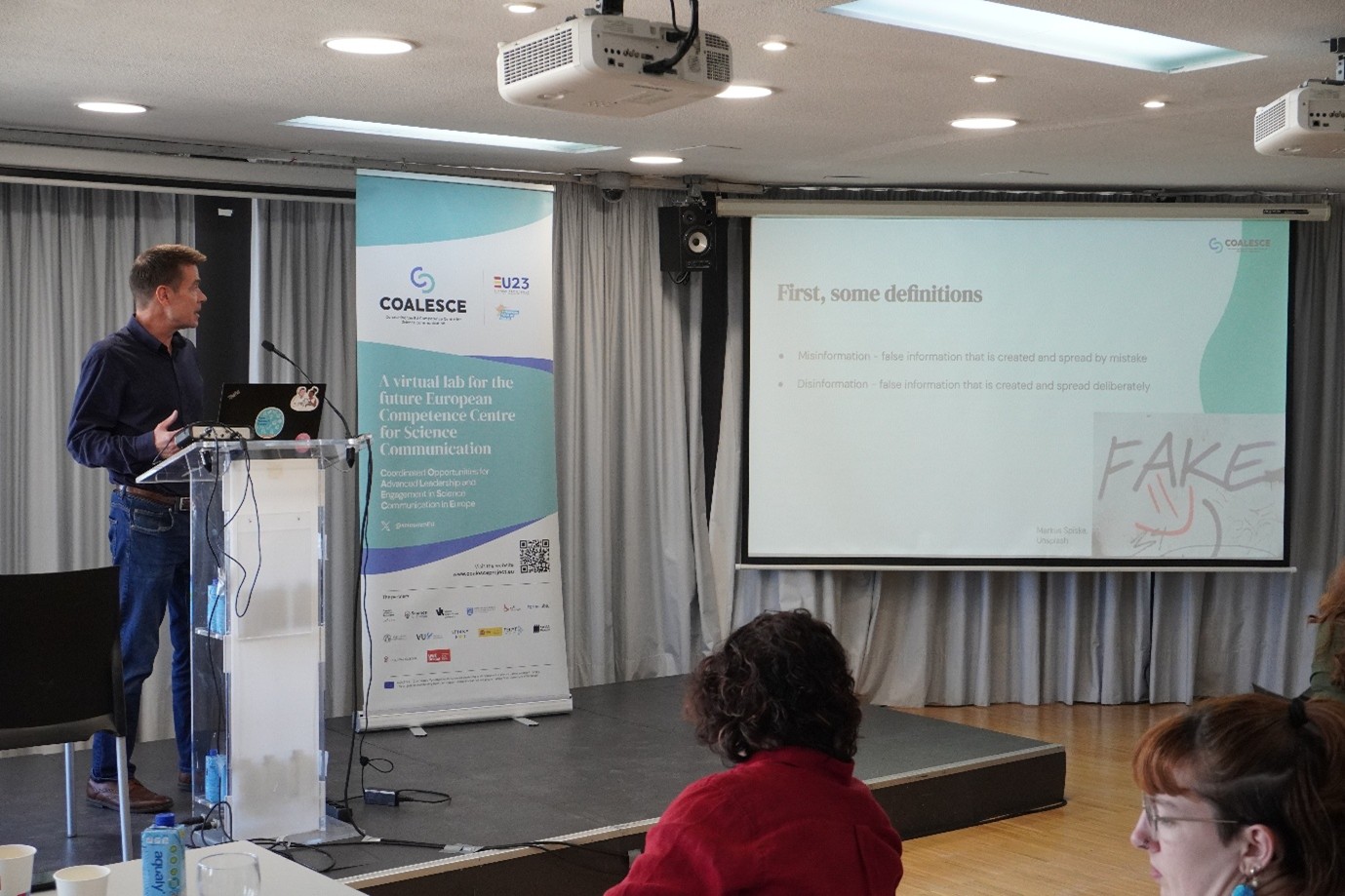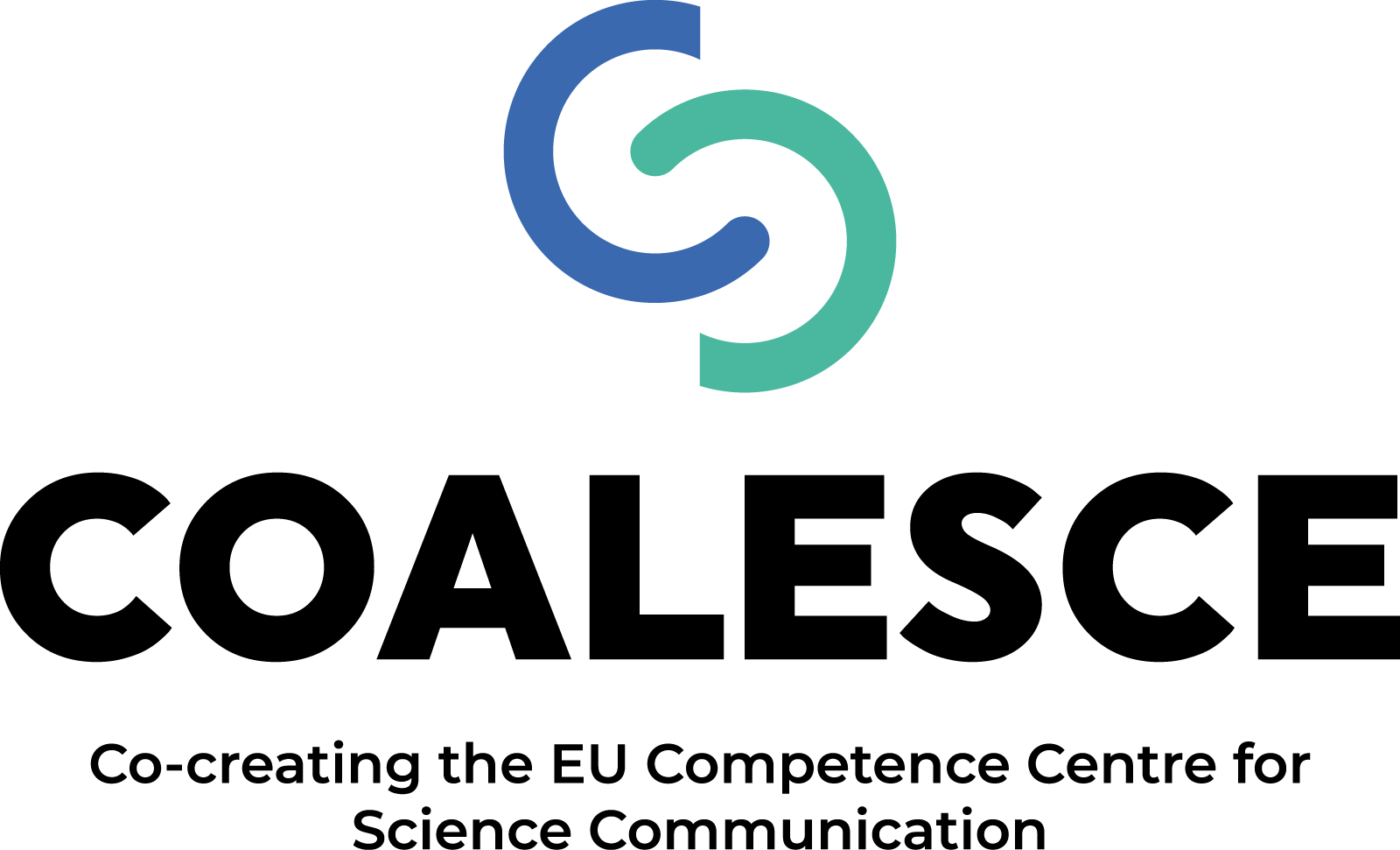Hubs discuss how to tackle misinformation about science

The COALESCE Hubs were invited to consider how misinformation impacts their work as part of a mutual learning and exploitation (MLE) meeting organised in Madrid.
Misinformation is a central theme within the COALESCE project given its prevalence and impact and the meeting with Hubs provided an opportunity to consider the environment of misinformation they work in – and explore approaches to address it.
The session that took place at Círculo de Bellas Artes in central Madrid was organised and hosted by Paola Rodari from SISSA Medialab and Andy Ridgway from the University of the West of England.
The discussions, supported by prompt cards created by the Formicablu team, highlighted that some science-related topics are a source of misinformation in several countries across Europe. For example, the Hubs identified that food supplements and ‘super foods’ are the subject of misinformation in many countries, including the Netherlands, Italy, Bulgaria, France and Lithuania. Whereas it was only the representatives of the Spanish and Estonian Hubs who described renewable energy as the subject of misinformation in their countries.
There are currently 23 COALESCE Hubs involved in the project, representing different countries and regions in Europe. They play an important role in COALESCE, shaping and translating resources being created in the European Competence Centre for Science Communication. The Hubs are a mixture of science centres, universities, non-profit organisations and businesses involved in science communication.
The Hub representatives who attended the MLE highlighted how misinformation mainly impacts their activities by increasing the need for fact checking as well as necessitating training for staff members in how to deal with it. Innovations in the education system that would allow young people to navigate the information they read online was seen as an important way to address misinformation.
It is planned that the Competence Centre will curate resources that will support science communicators in their efforts to address misinformation. It will also provide training related to misinformation for those communicating science.


